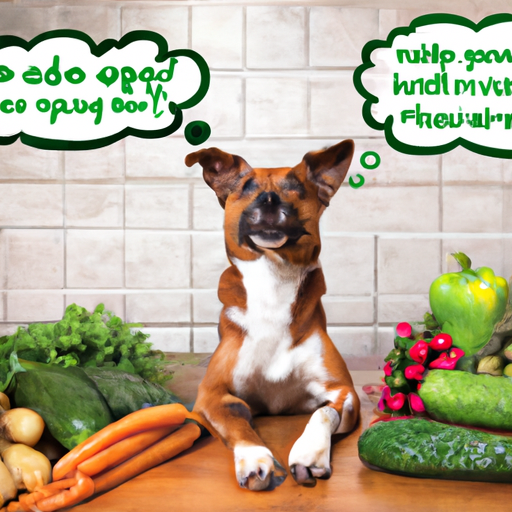As a responsible caregiver for your furry friend, you’re always looking for ways to ensure their health and well-being. But when it comes to their diet, there can be a lot of confusing information out there. So, let’s break down the facts about which vegetables are safe for dogs to eat.
1. Carrots
Carrots are a great choice for a healthy snack for your dog. They are low in calories and high in fiber and vitamins.
- Raw or cooked? You can serve them either way. Raw carrots are a great way to clean your dog’s teeth, while cooked carrots are easier to digest.
- Benefits: Carrots are rich in beta-carotene, which helps with eyesight and is an antioxidant.
- Precautions: Make sure to cut them into bite-size pieces to avoid choking.
2. Cucumbers
Cucumbers are a crisp and refreshing snack, perfect for a hot day. They are also low in calories and high in water content, making them a hydrating choice.
- Raw or cooked? Serve them raw and sliced.
- Benefits: Cucumbers are a good source of vitamins K, C, and B1, as well as potassium and magnesium.
- Precautions: Remove the seeds if your dog has a sensitive stomach.
3. Green Beans
Green beans are a nutritious and filling vegetable that your dog will love. They are low in calories and packed with vitamins and minerals.
- Raw or cooked? Both are good, but make sure to remove any strings if you’re serving them raw.
- Benefits: They provide a good source of protein, calcium, and iron.
- Precautions: If you’re using canned green beans, choose a no-salt version.
4. Pumpkin
Pumpkin is a versatile vegetable that can be used to aid your dog’s digestion. It is rich in fiber and vitamin A.
- Raw or cooked? Cooked is best for dogs. You can puree it or serve it as chunks.
- Benefits: It can help with both constipation and diarrhea.
- Precautions: Avoid canned pumpkin pie mix, as it has added sugars and spices.
5. Sweet Potatoes
Sweet potatoes are a great source of dietary fiber, vitamin A, and other nutrients.
- Raw or cooked? Always serve them cooked and peeled.
- Benefits: They can help support your dog’s immune system and eye health.
- Precautions: As with any food, moderation is key. Too much can lead to vitamin A toxicity.
| Vegetable | Raw or Cooked | Benefits | Precautions |
|---|---|---|---|
| Carrots | Both | Good for eyesight, antioxidant | Cut into bite-size pieces |
| Cucumbers | Raw | Hydrating, rich in vitamins | Remove seeds for sensitive stomachs |
| Green Beans | Both | High in protein, calcium, and iron | Choose no-salt if canned |
| Pumpkin | Cooked | Aids digestion | Avoid pumpkin pie mix |
| Sweet Potatoes | Cooked | Supports immune and eye health | Don’t overfeed |
FAQ
1. Can dogs eat all vegetables?
No, not all vegetables are safe for dogs. For example, onions, garlic, and mushrooms can be toxic.
2. How should I introduce new vegetables into my dog’s diet?
Start slowly and in small amounts. Monitor their reaction and consult with your vet if you notice any issues.
3. Can I replace my dog’s meals with vegetables?
No, vegetables should only be a small part of a balanced diet. Always consult with a vet for dietary advice.



